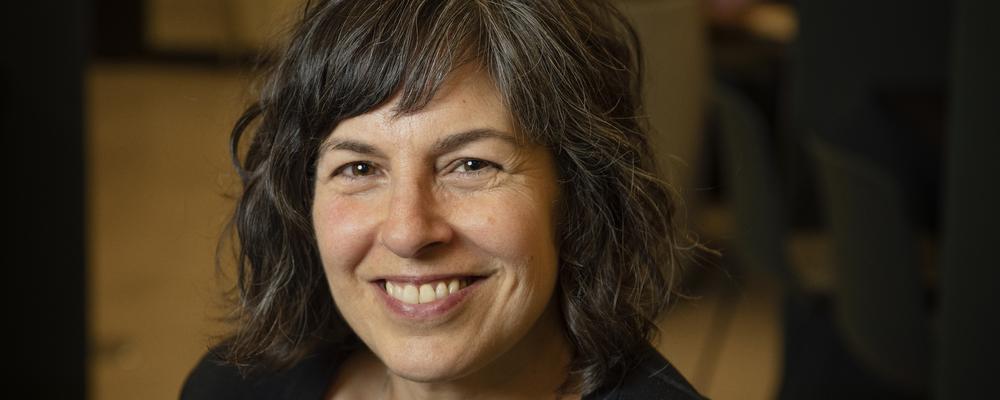There are about 7,000 languages in the world. Nearly half of them are considered endangered-
– I wish I could understand and speak all of them, says Leora Bar-el.
As a linguist, Leora Bar-el considers it part of her job to protect linguistic diversity, in particular those endangered languages spoken by only a very few people. The right to protect, preserve, and speak one’s native language is clearly proclaimed in the UN Declaration of Human Rights.
– This is because our identities are so deeply rooted in our mother tongue, which becomes particularly evident when people have been denied the right to speak their own language. In North America, for instance, there was a deliberate attempt to eradicate the identity of indigenous peoples by banning their languages, explains Leora Bar-el, who through her research works to support the maintenance of some of these indigenous languages.
Other examples of vulnerable language groups include ones spoken by Indigenous peoples of Australia and, for that matter, the Sami of Sweden.
New life to endangered languages
As recently as 2007, the UN General Assembly adopted the Declaration on the Rights of Indigenous Peoples. In Article 13 it is stated that indigenous peoples have the right to revitalise, use, develop and pass on to future generations their history, language, oral traditions, philosophies, writing systems, and literature.
In North America, as well as some other places, groups and communities are working to restore and give new life to endangered languages, partly using language and culture programmes. Native speakers of the language are recorded and sometimes videotaped. Through strengthening languages, societies and cultures are also strengthened, and vice versa.
– We linguists help document and study languages on a deeper level by looking for patterns of similarities and differences in how languages take form, are learned and taught.
In this ocean of languages, how has she chosen which languages to focus on?
– Sometimes, it’s as though languages choose me, says Leora Bar-el.
She wrote her doctoral thesis in Vancouver on Squamish, an indigenous language spoken by a people of the same name. For 8,000–10,000 years they had settlements in the area that today is the city of Vancouver in British Columbia. Squamish belongs to the Salish language family, with languages spoken in northwestern North America, including Montana. Leora Bar-el has more recently been studying the Salish language Séliš-Ql̓ispé, spoken in Montana.
Well received at FloV
As a guest professor, Leora Bar-el is based at the Department of Philosophy, Linguistics, and Theory of Science, FloV.
– I’ve been really well received at FloV and have had the opportunity to teach, meet students, and participate in seminars.
Alongside Malin Petzell at the Department of Languages and Literatures, and Ponsiano Kanijo at Mkwawa University College in Tanzania, she studies previously undocumented Bantu languages in Tanzania.
Leora Bar-el also wishes to debunk myths about language and promote people’s appreciation of linguistic diversity by raising awareness of different languages and the importance of preserving dialects.
– People often say they don’t have time to learn a new language, but simply learning about languages helps to protect linguistic diversity, says Leora Bar-el.
Knowledge of how we learn languages is also the key to understanding our own nature, she further explains.
– Without linguistic diversity, we would not understand the human mind. When you learn another language, you can’t help but also learn about other cultures and societies as well. Doors open up to a global world and you realise that you’re part of something much bigger. At the same time, you learn more about yourself and your own language, things you likely wouldn’t have noticed otherwise. Linguistic diversity has several important advantages. Language skills improve connections in the brain, slows down the effects of dementia, according to various studies.
Linguistics a “discovery” subject
Leora Bar-el became interested in languages at an early age. She grew up in a multilingual family outside of Toronto, Canada, and attended a bilingual school where they spoke English and Hebrew. Her father’s parents came from Russia and moved to Israel, from where her father moved to Canada. Her mother’s parents came from Poland. Although she was surrounded by different languages, it was only once she entered university that she discovered the field of linguistics.
– I took an introductory course and was immediately hooked, says Leora Bar-el. When you come to study linguistics, it becomes almost impossible not to spot the patterns in speech and writing. It’s beautiful. You don’t even need to know how to speak a language, as just learning a bit about it will help you see the patterns.
In the US, linguistics is considered a “discovery” subject, one people are unaware of unless they happen to come across it at university. Leora Bar-el and her colleagues are trying to ignite an interest from high school students, some of whom they hope will come to choose linguistics once they enter university.
– The world needs many more linguists! There is so much more to learn from underdocumented and endangered languages. Because of linguistic diversity, the world is more dynamic and vibrant.
Text and Photo: Anna Rehnberg

